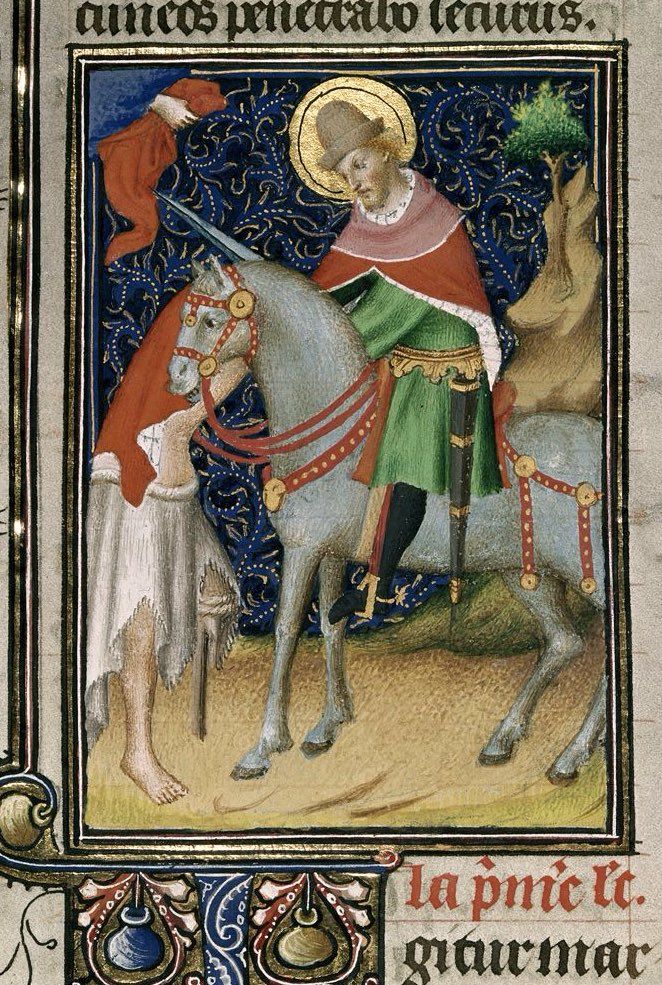by Sr. Elizabeth Ann, SSJD

There is a story told about Martin on his way into Amiens meeting a beggar who was almost naked. Martin cut his soldier’s cloak in half and gave it to the beggar. Later, Martin had a dream in which he saw Christ clothed in half a soldier’s cloak who said, “Martin, a mere catechumen, covered me with his garment.” Martin, not yet baptized, took to heart the works of mercy we heard in the gospel today: to clothe the naked.
Stephen Reynold’s account of the life of Martin in For All The Saints tells a good story. After he’d left the army, Martin was baptized and for his first few years as a Christian lived a very aesthetic life, eventually organizing the first monastic community in France. In 372 he was elected Bishop of Tours but continued to live as a monk.
Martin was disliked by other Bishops. Reynolds suggests that it could well have been snobbery on the part of the other Bishops who saw themselves as part of the establishment and immersed in the culture of the Roman Empire. Soldiers were despised by the cultured and excluded in principle by the Church. Martin was not allowed to be baptized until he had retired as a soldier.
But it was Martin’s life as a monk which really irritated the other Bishops. Martin did not accept the values of empire but was more concerned with mercy for the poor, living as a monk himself. By the end of the 4th Century, the Christian Church was on its way to becoming, as Reynolds puts it, the “Roman empire at prayer.” There arose a heated dispute between Martin and the other Bishops, each threatening the other with excommunication. The other Bishops were ready and eager to accept troops from the emperor to help suppress a heresy in Spain. Although Martin also was opposed to the heresy, he disagreed in using violent means to further the work of the gospel. This is an interesting stance from one who had served as a soldier with experience of how soldiers imposed imperial peace on subjugated peoples. Could there be actual peace when it was imposed through violent means? Martin could not reconcile Christ’s message of compassion, justice, mercy, and peace with the use of violence in quelling heresy, nor in furthering the peaceable kingdom of God as Christ taught. It is Martin’s stance of integrity as a Christian in opposition to empire and power which really speaks to me on this day when we remember the many fallen in far too many wars. Lest we forget. As Thich Nhat Han has said and as Martin lived, “there is no way to peace. Peace is the way.” Amen.


